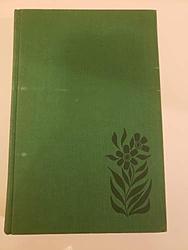The Devil to Pay in the Backlands by Joao Guimaraes Rosa
"The Devil to Pay in the Backlands" is a complex narrative that follows the life of a Brazilian sertanejo (backlands dweller) who becomes a bandit and a feared killer. Tormented by his violent actions, he embarks on a metaphysical journey, wrestling with philosophical and religious questions, and trying to reconcile his deep belief in fate and predestination with his own free will. The book is notable for its innovative language, blending regional dialects with neologisms and classical references, which adds to its rich portrayal of the Brazilian backlands.
The 498th greatest book of all time
- Published
- 1956
- Nationality
- Brazilian
- Type
- Fiction
- Pages
- 500-600
- Words
- 600,000
- Original Language
- Portuguese
If you're interested in seeing the ranking details on this book go here
This book is on the following lists:
- 5th on The 100 Best Novels of the 20th Century (Folha de São Paulo)
- 45th on 100 Best Novels, in Translation, Since 1900 (CounterPunch)
- 61st on In Which These Are the 100 Greatest Novels (ThisRecording.com)
- Top 100 Works in World Literature (Norwegian Book Clubs, with the Norwegian Nobel Institute)
- 1001 Books You Must Read Before You Die (The Book)
- 1000 Novels Everyone Must Read (The Guardian)

